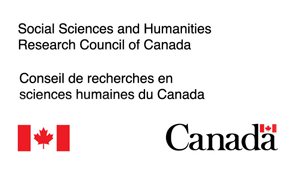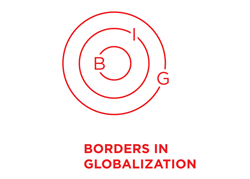
Trade and Customs Borders in the 21st Century
Code: BIG780
Apply this course towards:
Modern Border Management: Trade and Customs
Course description
This course explores the regulatory environment of trading networks looking at how these networks functionally redesign borders and the ways in which they influence custom policies and practices.
Professionals from the Canada Border Services Agency, the Pacific North West Economic Region, and the World Customs Organization, as well as leading academics in the field of border studies will lead a curated syllabus of workshopped discussions, presentations, required readings, and practicum sessions. Learners will develop a comprehensive understanding of the reality of 21st century borders and the context of trade flows in a globalizing world.
Special guest speakers:
- Peter Swartz, Altana AI
- Solomon Wong, InterVISTAS
- Hubert Duchesneau, Organization for Security and Co-operation in Europe (OSCE), International Monetary Fund (IMF)
- Geoffrey Hale, University of Lethbridge
- Frederique Berrod, Strasbourg Institute of Political Studies (Sciences Po Strasbourg) at Strasbourg University, France
- Jenia Peteva, European Commission
- Cameron Walter, Organization for Security and Co-operation in Europe (OSCE)
- Kathrine Richardson, San José State University, California
- Ricardo Treviño Chapa, World Customs Organization (WCO)
Learning objectives
Upon completion of this course you will be able to:
- Describe challenges and opportunities arising from sectoral and regional diversity in goods and services exports in historical and contemporary perspectives.
- Explain the interaction of bordering policies with the political economy of trade and investment policies in the context of international activities and market flows.
- Evaluate the major political, economic, social, and technological forces, as well as international trends that have shaped custom mandates, roles, and policies in the Canadian context.
- Understand the role data science and information technology play in the risk and regulation of cross-border trade and travel.
- Describe the interconnectivity of energy networks and borders in the EU.
- Explain the mathematization of borders – i.e. the set of rankings, scoring, and computation practices related to borders and the national and international institutions that use and disseminate them.
Registration details
Select your offering:
You have already registered for this course.
This item is already in your shop cart.
You're already on the waiting list for this item.
Sorry, this section is full.
Online registration temporarily unavailable
Sorry, this course is not available for registration at this time.
This course is in progress. Please contact us for more details.
Online registration is closed for this course. You may still be able to register by phone. Call 250-472-4747 to find out.
This course is on your wish list. You will be notified when this course becomes available.
Want to receive notification when this course becomes available?
{{ loggedIn ? 'Add to wish list' : 'Sign in/create a new account to add to wish list' }}Info you should know:
Continuing Studies statement on use of educational technology
Program sponsors




